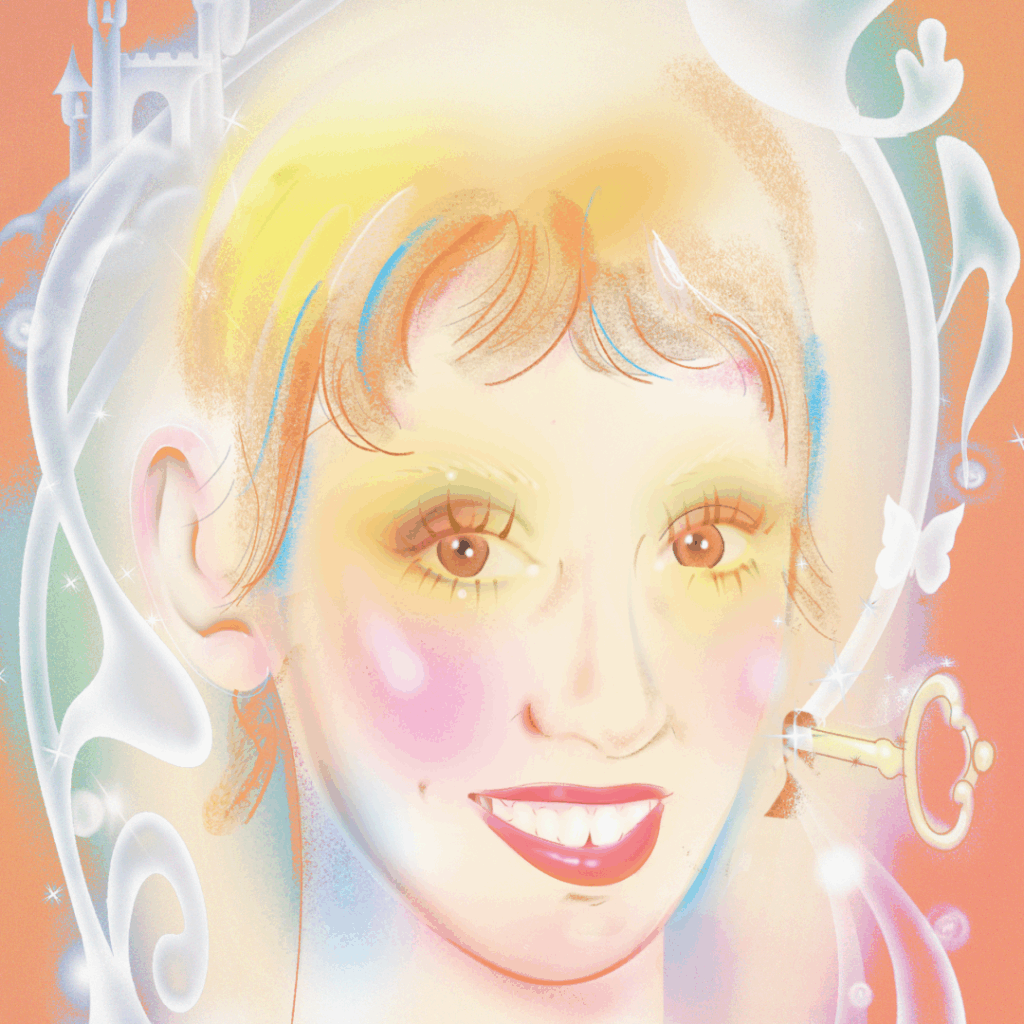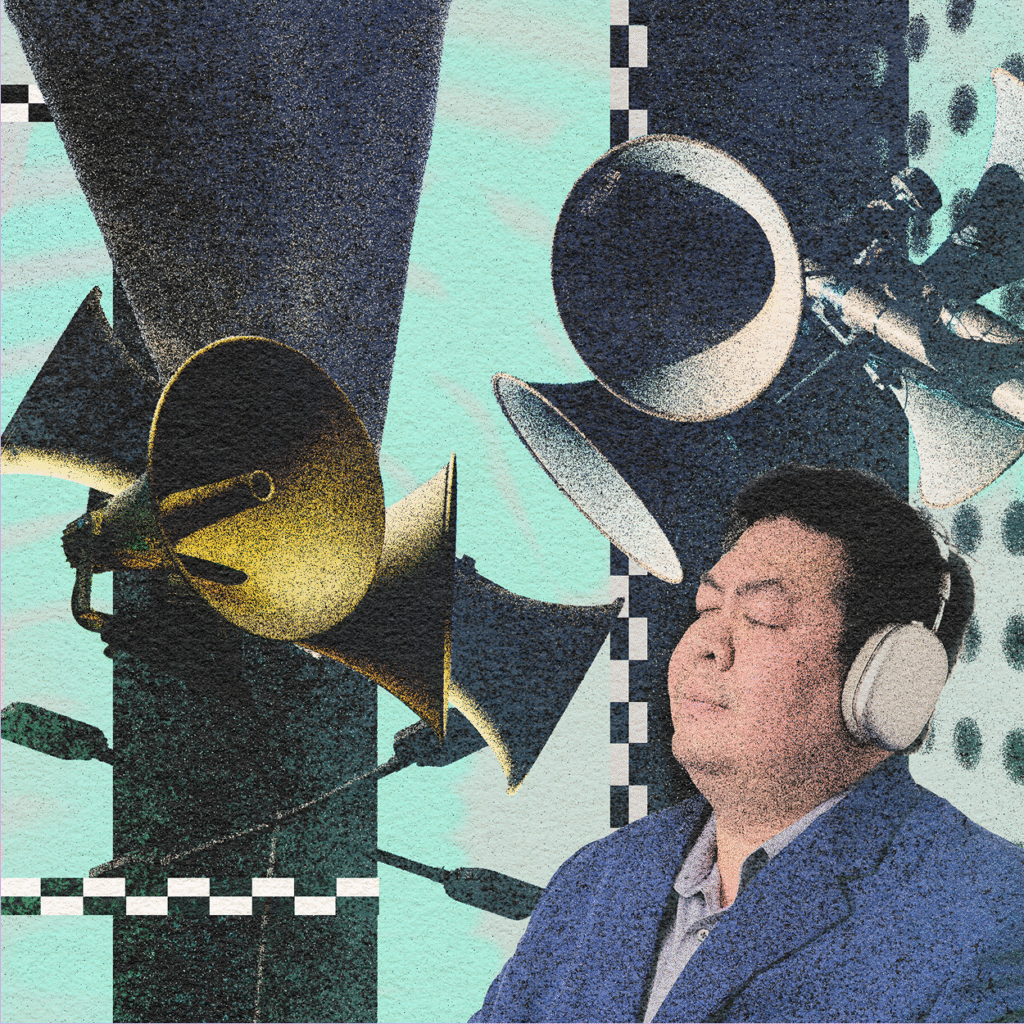The Shining, At Last
“I am standing at the foot of Shelley Duvall’s driveway,” I announced to the lav mic clipped to my shirt collar.
Loose gravel collected at the foot of a winding path whose end was obscured by thick fog. Somewhere in that fog was the woman herself: Shelley Duvall, probably sitting in an easy chair accompanied by her pet cockatiels, Austin and Taxi.
“Shelley Duvall’s driveway,” I said again to the fog.
I could picture her inside that sprawling ranch, hidden from view at the end of the driveway, probably finishing a slice of peach cobbler, one of her favorite treats from the local diner. But more than that, I could hear her. I replayed in my head her soft Texas drawl, a voice that had remained unchanged since “Brewster McCloud,” her first film role in 1970. Behind that voice was a brilliant, dedicated, and eccentric mind, a wealth of knowledge, and decades of unsung accomplishments.
Duvall, if you aren’t familiar, graced the silver screen as Wendy Torrance in “The Shining,” and wrote, produced, and directed six seasons of “Faerie Tale Theatre,” among many other credits. In fact, the storied actor spent more time behind the camera as a producer and writer than the public knew, even at the height of her fame in the 1980s.
But after her last movie credit in 2002, she vanished. Aside from an exploitative interview on “Dr. Phil” 14 years later—previews caused so much public outcry that it never aired—Duvall had departed from the public eye without so much as a goodbye.
In the interim, of course, a smattering of speculative tabloid articles had been published, virtually all of which focused on the fact that in 20 years Duvall had aged 20 years. Articles lamenting her weight gain, wrinkles, and state of mind featured titles like “Shelley Duvall Demented.”
From the very beginning of her career, Duvall’s appearance, from her eclectic outfits to her signature smile to her weight, had been the focus of her media coverage. As I began researching, I quickly discovered that even her Wikipedia page glossed over the extent to which she revolutionized the television industry. Nowhere was there mention of the fact that it was Duvall who pioneered the concept of original series for cable television. Little was written about her single-handed production of six seasons of “Faerie Tale Theatre,” a cultural touchstone for an entire generation. Nothing about her very own production companies, plural. Instead, more ink was spilled describing her outfit choices, the size of her teeth, and the estimated circumference of her waist.
The “Texas Twiggy” podcast was born when I set out to create a series that would give Duvall the credit she deserved. Through audio, I hoped audiences would focus on what she had done, not what she looked like, how she dressed, or how she’d aged.
I chose to make a podcast because audio is ephemeral. It offered a timelessness, an intimacy, that video or prose couldn’t. Of course, Duvall looked different in 2024 than she did in 1970. Funnily enough, though, her voice had remained largely unchanged; a voicemail she left my research assistant (“I’m outside the restaurant, but I’m waiting for a prime spot for my car. Give me a minute,”) sounded nearly indistinguishable from her many interviews throughout the ’80s and ’90s.
Getting a hold of anyone in Duvall’s circle, let alone her family, seemed nearly impossible. Many of them hadn’t spoken to the press in decades, if at all. But the fact that “Texas Twiggy” was an audio production seemed to alleviate their fears. Eventually, Duvall’s brother Shane, now living a quiet life in a Houston suburb, invited me for lunch in their hometown.
Armed with a recorder, a binder full of newspaper clippings, and several pages of printed maps, I made the 23-hour drive from Los Angeles to Houston. Soon enough, I found myself in the passenger seat of Shane’s Jeep, touring Duvall’s childhood stomping grounds. He told me he hadn’t spoken to the media prior to our time together because he saw how they treated his sister.
“You seemed like you had good motivations,” he told me, gesturing at the microphone I had rested against the center console. “Back when she was in Hollywood, it was always about her teeth, or ‘she’s so skinny.’ That’s not what she’s about, you know?”
With a podcast, we agreed, listeners could learn about Duvall’s work, her passions, and her life without those distractions. There was some redemptive coverage in the 2020s: a Hollywood Reporter article and a profile in the New York Times documented Shelley’s past and present with grace and respect. On the heels of the #MeToo movement, the public was reconsidering their attitude towards many maligned women in pop culture, finally acknowledging their achievements rather than their bodies. Duvall was no exception.
But some have continued to exploit her. “Texas Twiggy” researcher and fellow fan Sarah Lukowski moved to Austin shortly after production, and formed a relationship with Duvall through a mutual friend, posting photos of her lunch dates to her fan pages. The photos of their first meeting were endearing but unremarkable: just a couple of women sharing laughs over peach cobbler at a local diner. Soon, the Daily Mail lifted the photos without permission and published an article under the headline, “The Shining’s Shelley Duvall Looks Unrecognizable Decades After Quitting Acting.” Reader comments focused on just that: hundreds and hundreds of people pointing out the fact that at age 73, Duvall looked 73.
I’d had Duvall’s number for a while, but both her brothers had warned me that she could be very hard to schedule something with. Though they gave me the go-ahead to pop by her house and see if she’d speak with me, in the end, I never did walk up that driveway. Standing there thinking of Duvall peacefully existing in her home, finally having escaped the prying and cruel eyes of the tabloids, I realized: I didn’t need—nor did I want to—be another intruder. I had done what I’d set out to do: chronicle her life and career in a way that honored her as a person.
Shelley Duvall passed away in her sleep on July 11, 2024, four days after her 75th birthday. Even in death, the media continued to harp on her appearance. The Hollywood Reporter broke the news in an article that began, “Shelley Duvall, the saucer-eyed, rail-thin waif…” But some outlets, especially local news, remembered her for what she had accomplished. In an interview that aired the day after her death, The Texas Standard asked me what I hoped Duvall would be remembered for. I spoke for half an hour about her talents, her intelligence, and her passions. The story aired with the headline, “Remembering the Genius of Shelley Duvall.”Businesses in Duvall’s neighborhood remembered her fondly in the local papers. From the tire shop she’d frequented in her white Toyota 4Runner to a local diner that made a “dang good meatloaf sandwich,” the community rallied around her memory. “Texas Twiggy” lives on as a testament to that memory. For my part, I am proud to have shared Duvall’s impressive life with listeners, who can invite her into their minds not as a younger, older, smaller, bigger, prettier, or uglier version of herself, but as the person she really was.
![]()
Emma Lehman is an LA-based podcast producer and investigative journalist. In addition to “Texas Twiggy,” she produced and hosted “Gooned,” a Shorty Award-winning investigative podcast.









